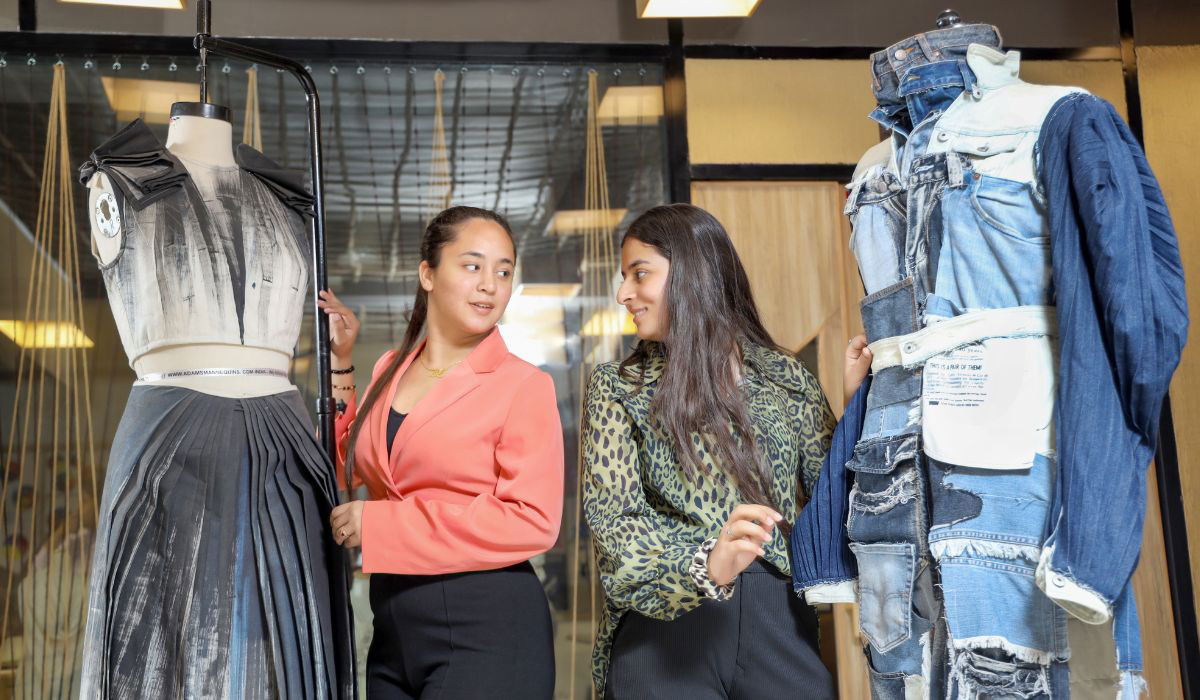Fashion entrepreneurs push the global fashion industry ahead with design innovation and new business models. Be it building an independent brand or launching a fashion tech business, these entrepreneurs’ stories exemplify the motivation and perseverance required for success in the present competitive world.
Starting a fashion business can be exciting. From designing a dream range to figuring out the prestige of selling these in renowned stores, the process can be very exciting. That said, there are also many challenges involved in fashion business management.
In case you are interested in fashion entrepreneurship then navigating through the challenges and making the most out of opportunities in starting a business is important. While becoming a fashion entrepreneur, one can overlook these factors when they set up their fashion business management.
Let’s see how to navigate the challenges and opportunities in starting a fashion business.
What is Fashion Entrepreneurship?
Fashion entrepreneurship is the process of creating and managing a business in the fashion industry. It involves people and groups who identify opportunities, innovate in designs and business models, and take calculated risks for establishing and running fashion-related ventures.
Fashion entrepreneurs can effectively navigate the complexities of the industry combining creativity with strategic business acumen for bringing their vision to life. With a strong focus on design innovation, they bring unique and creative perspectives to clothing, accessories, and other fashion-related products for differentiating in the competitive world.
Successful fashion entrepreneurship requires detailed business planning as entrepreneurs need to develop a comprehensive business plan that can also outline their brand identity, competitive analysis, target market, financial projections, marketing strategies, and operational plans.
How to Navigate the Challenges and Opportunities in Starting a Fashion Business?
Thorough Research and Planning: When the plan is to start a fashion business, the best way is to start by performing by conducting comprehensive market research to understand current trends, customer preferences, and your competitors.
You can develop a detailed business plan that can outline the brand identity, target market, and production process, and also lay out the marketing strategies. A well-researched plan can serve as a roadmap helping in anticipating the challenges and also capitalizing on opportunities.
Design Aesthetic: One of the challenges in starting a fashion business is developing a unique and appealing design aesthetic to stand out in the saturated market because this requires creativity and a deep understanding of current trends. Balancing innovation with practicality is crucial for creating a collection that resonates with the target audience.
Make sure that you set your brand apart by establishing a unique design aesthetic. It is important to stay informed about present trends, infuse the designs with a distinct flair that reflects the brand’s identity, and ensure that the designs resonate with the target audience striking a balance between innovation and wearability.
Embracing E-Commerce: In this digital age, ensuring a robust online presence is important. Navigating the challenges of e-commerce from setting up a user-friendly website to managing inventory and processing online transactions securely requires technical expertise.
Fashion entrepreneurs must be abreast of evolving e-commerce trends to maintain a competitive edge. It is important to use the power of e-commerce to reach a broader audience.
It can be helpful to invest in a user-friendly website, implement safe online transactions, and optimize for mobile users. In addition, users must also use digital marketing strategies including social media and search engine optimization so that online presence is enhanced and it drives sales.
Strategic Branding: It is necessary to create a compelling brand story that can resonate with the target audience. Consistent branding across all channels must be carried out from logo design to marketing materials that can help in building brand recognition.
Clearly communicate your brand’s values and unique selling propositions to establish a memorable presence in the market. Fashion entrepreneurs must establish a strong brand identity to gain recognition and loyalty.
To address this challenge, it is important to develop a cohesive brand image including a compelling logo with consistent messaging and a unique selling proposition which requires strategic planning. It is important to create a brand that does not just resonate with the target audience but also differentiates the business from the competitors.
Effective Marketing Strategies: Effective marketing of a fashion business is a persistent challenge as building an online presence using social media, e-commerce platforms, and a company website is important.
Fashion entrepreneurs must make efforts to create engaging content, use influencers, and implement a targeted advertising strategy for a successful marketing plan. It is best to find effective channels for reaching a specific audience and capitalizing on that.
Efforts must also be made to use diverse marketing strategies for creating brand awareness and driving more sales. Social media platforms are the best to show designs, engage with the audience, and collaborate with influencers.
Brands should invest in professional photography and content creation to highlight the products effectively. In addition, staying adaptable by adjusting the marketing approach based on the growing digital advertising landscape is also helpful.
Prioritize Customer Experience: While building a fashion brand, it should be a priority to deliver an exceptional customer experience to build loyalty and positive word-of-mouth. You should be able to offer clear and transparent communication about the products with easy shipping and return policies.
It can also be helpful to implement excellent customer service for addressing inquiries and resolving issues promptly. Positive customer experiences can contribute to business and brand advocacy.
Financial Management: Managing finances can be a challenge for startups and the fashion industry is no exception. The initial investments made in design, production, and marketing should be budgeted carefully.
Things such as tracking expenses, managing cash flow, and ensuring a good profit margin are also important for the sustainability of the business. Streamlined financial management also ensures the sustainability of a business.
It is important to monitor cash flow, track expenses, and establish a realistic budget. Fashion entrepreneurs must be focused on keeping a close eye on inventory turnover rates to minimize excess stock and avoid tied-up capital.
Return Policy Adherence: When starting a new business, understanding and adhering to the return policies is also important. Designer brands have stringent guidelines to maintain brand integrity. Return policy must be accepted within a specific timeframe and items should be in pristine condition with original packaging and tags.
It is important to decide whether your brand will replace in case of a genuine problem or refund the money. Most designer brands replace in case of a genuine snag, not refund. Some brands can also have restocking fees or credit-only policies which further limit cash refunds. It is important to ensure transparent communication with customers about the policies to manage expectations.
Establishing a seamless return process will contribute to customer satisfaction and foster trust in building the business. It is also helpful to regularly see and update your policies to align with each designer brand’s specific requirements fostering a positive customer experience as you embark on your business journey.
Agility and Adaptability: The fashion industry is pretty dynamic in nature with trends and customer preferences growing at a quick rate. This is why fashion entrepreneurs must make considerable efforts to stay agile and adaptable to changes in the market.
Monitoring the industry trends, customer behaviour, and emerging technologies for adjusting the strategies accordingly is important. In addition, fashion entrepreneurs must also embrace innovation and be open to refining the approach based on feedback and market shifts.
Summing It Up:
Fashion entrepreneurs must adopt a multifaceted approach for the successful navigation of challenges and opportunities in starting a fashion business. While starting a new fashion business, be it consulting, bespoke, customization, or ready-wear business, the entrepreneurs must understand the segment that the brand wishes to cater to by tweaking the operational plan.
In addition, they should be mindful of strategic planning, effective marketing, creative differentiation, and adaptive management to succeed in the competitive world of fashion. If you are interested in fashion entrepreneurship and wish to learn more about navigating the challenges and opportunities involved in starting a fashion business then pursue a program such as 4-Year Bachelor of Design Fashion Design.
The B.des program in Fashion Design prepares students for catering to the business of Fashion, and also introduces learners to entrepreneurship, and assists in the incubation of reliable business ideas.






